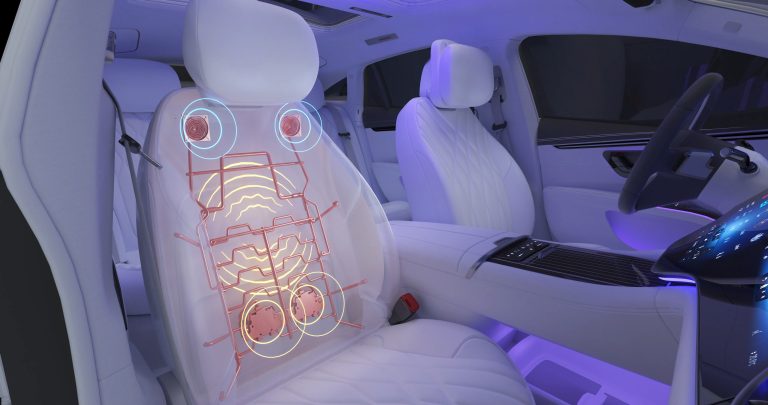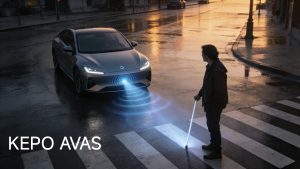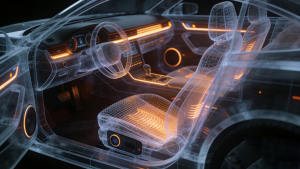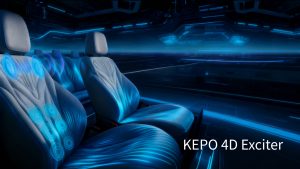In the evolving fields of automotive and entertainment technology, 4D seat exciter systems play a crucial role in enhancing user engagement. By embedding vibration mechanisms directly into the seat, this technology provides realistic, real-time feedback, creating a more immersive and dynamic driving experience.
Technical Overview
The Kepo 4D seat exciter operates using either electromagnetic or piezoelectric principles, enabling it to respond to various input signals such as audio or vehicle data. This generates vibrations that mimic environmental sensations, such as road texture or sound vibrations. It is equipped with a high-performance linear motor capable of rapid acceleration, and offers a frequency range between 20Hz and 100Hz, making it compatible with most seat types. The vibrator supports flexible mounting configurations, suitable for both front and rear seats, delivering substantial power for a rich user experience.
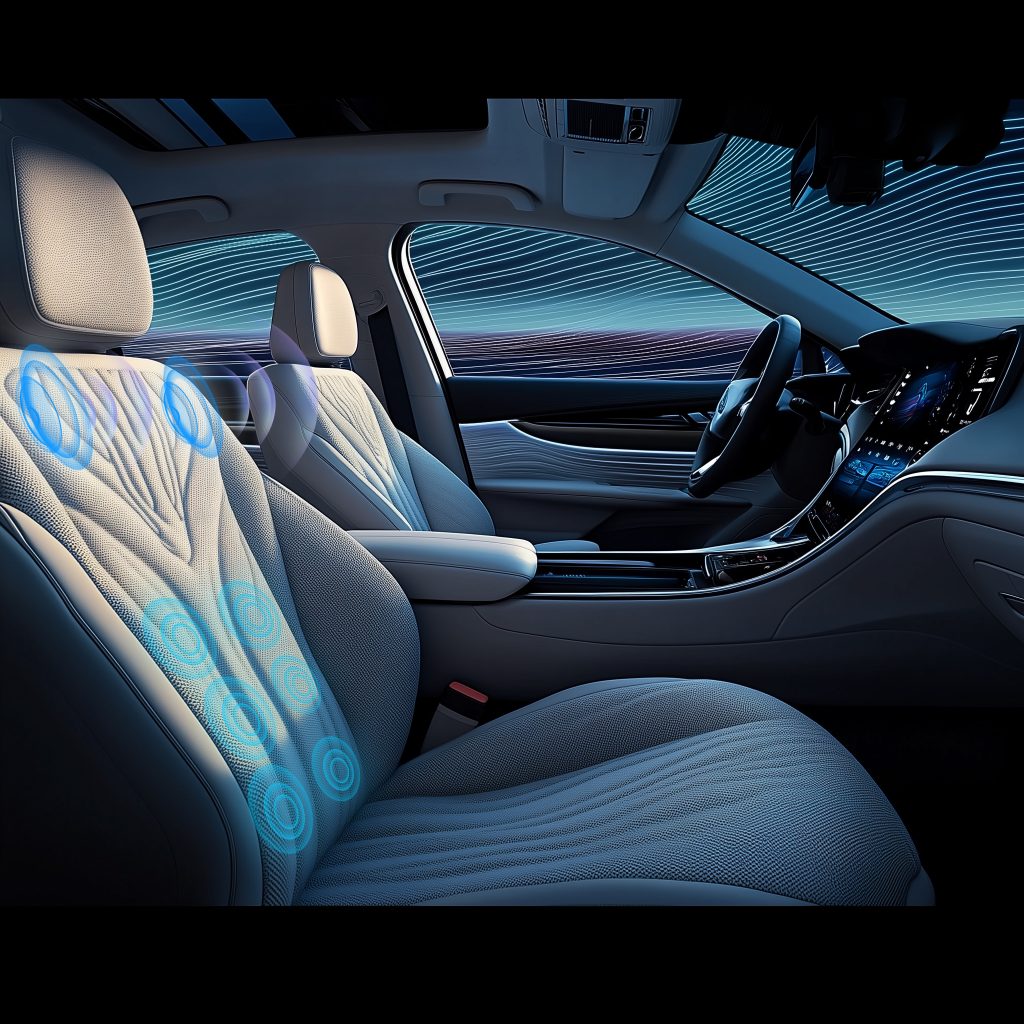
Kepo 4D Exciter System
The Kepo 4D Exciter System takes comfort and immersion to the next level. This resonator is seamlessly integrated into the seat structure, boosting the vibration effects while also offering a customized musical vibration experience tailored to various driving scenarios. This system provides a refined and adaptable solution for both entertainment and driving comfort.
Kepo Experimental Setup and Simulations
To ensure optimal performance, Kepo conducts rigorous testing using specialized experimental setups and simulations. Key equipment includes:
– Vibration Test Bench: Used to simulate a wide range of vibration frequencies and intensities.
– Environmental Simulation Module: Tests how the product performs under different environmental conditions such as temperature and humidity.
– Acoustic Testing Room: Ensures the synchronization of vibration with sound effects for a cohesive user experience.
Kepo Simulation Testing Process
1. Parameter Configuration: Vibration frequencies and amplitudes are adjusted based on the specific application requirements.
2. Testing Phase: Vibration tests are performed using the designated equipment to gather performance data.
3. Data Analysis: Data is analyzed to assess how well the vibrations match the input signals, including sound synchronization.
4. Optimization: Based on the results, design parameters are fine-tuned to further improve the vibrator’s performance.
Conclusion
The Kepo 4D seat exciter is at the forefront of immersive technology, significantly enhancing user experience through high-quality materials, advanced simulations, and precise engineering. As the technology continues to evolve, its applications are expected to expand, offering exciting new possibilities across a variety of industries.

